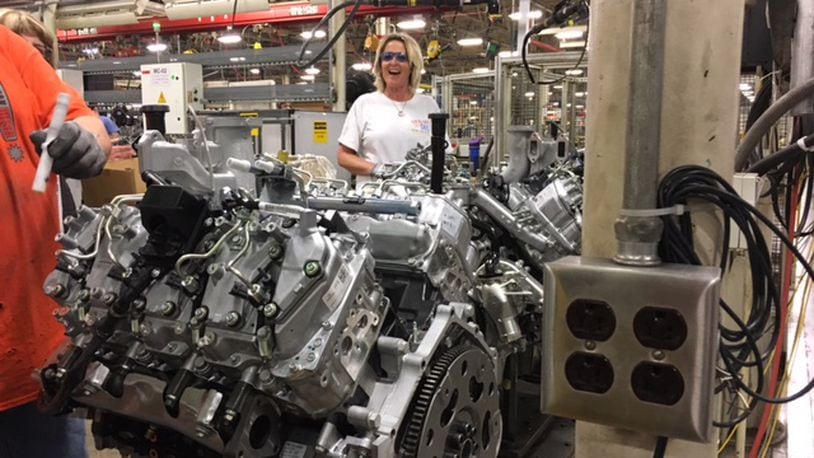Marvin Cunningham, president of West Chester Twp.’s Long-Stanton Manufacturing Co., is worried about the next four years.
“I think overall Trump has ceded American leadership in this area,” Cunningham said Tuesday.
RELATED: Chinese media: Fuyao founder extols manufacturing in U.S.
And if the president re-negotiates the North American Free Trade Agreement — which governs trade between the U.S. and Canada and Mexico — Cunningham added: “That’s going to hurt my customers dramatically, which in turn will hurt me and my employees.”
With 35 employees, Long-Stanton is a metal stamper and sheet metal fabricator, working for manufacturers that trade globally, he said. He has customers in aviation and other industries. The Butler County company also has an office in the ZhongLou economic development zone in China, according to its web site.
But the issue is far from simple. A March 2016 study from the labor-leaning Economic Policy Institute (EPI) found that in 2015, the U.S. trade deficit with TPP countries translated into 2 million U.S. jobs “lost,” with 1.1 million of those in the manufacturing sector.
RELATED: DMAX plant overcomes odds that others couldn't
In Ohio’s 10th congressional district — which includes Dayton, Montgomery and Greene counties, extending into Fayette County — 6,700 net jobs were displaced by trade with TPP nations, affecting 2.14 percent of district employment, according to the study.
Across Ohio, 112,500 net jobs were displaced by TPP trade, affecting 2.16 percent of the state’s total jobs, the study said.
In the study, the EPI said the treaty “lacks an absolutely key component to keep it from doing potential damage to the U.S. economy. The missing piece of this trade and investment deal is a set of restrictions and/or enforceable penalties against member countries that engage in currency manipulation.
“Currency manipulation is one of the key driving forces behind the high and rapidly rising U.S. trade deficit with the 11 other members of the TPP,” the study said.
SOCIAL MEDIA: Follow Business Writer Thomas Gnau on Twitter.
One company alone in the Dayton area has largely vanished since the late 1990s, in part due to global trade’s influence. Auto parts manufacturer Delphi once had some 15,000 local workers in the Miami Valley in the mid- to late ’90s. Today, the company has locations across the world, but it no longer has a presence locally.
But the area is also home to companies and employers with roots in Asian nations, including the DMAX truck engine plant and Fuyao Glass America, both in Moraine.
Jim Clark, president of the Moraine-based IUE-CWA, estimated that his union at one point had about 13,000 members nationally working for Delphi. Today, the union has about 700 Delphi workers in Warren, Ohio and another 300 or so in Brookhaven, Miss.
“We have been fighting this legislation strongly,” Clark said of the TPP.
Clark believes that if human rights and worker protection laws — laws he strongly supports — govern U.S. companies, they should govern competitors as well.
“It’s totally unfair … for our manufactuers to go off-shore, exploit people and exploit the environment,” he said.
Chris Kershner, vice president, public policy and economic development for the Dayton Area Chamber of Commerce, agreed that the issue is a difficult one.
“Ensuring there is a climate that allows Dayton area business to economically succeed is key to the mission of the chamber,” he said. “While we did remain neutral on the TPP, we are hopeful that there will continue to be policies supporting an environment for Dayton area businesses to be successful.”
Richard Stock, director of the University of Dayton’s Business Research Group, feels that on the way toward what he calls global trade “integration,” there probably were insufficient protections for American workers and the environment.
But he agreed that it’s too late to put the genie back into the bottle.
“We are already past the point where you can go home again,” Stock said.
About the Author
